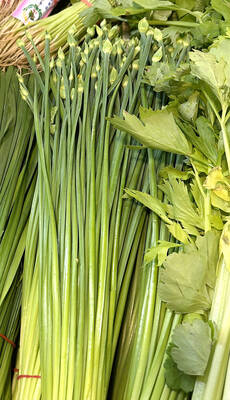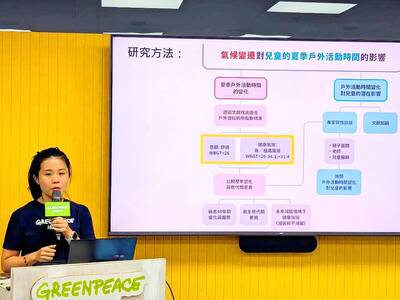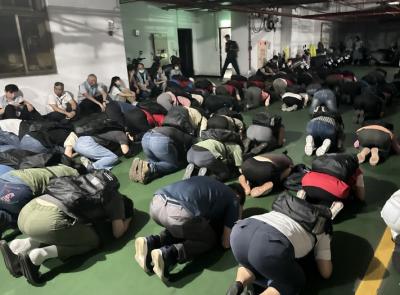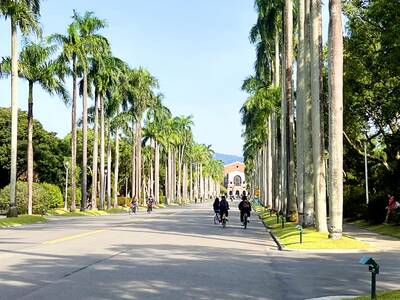The legislature yesterday made a major breakthrough in promoting legislative transparency by passing an amendment to the Law Governing the Legislature’s Power (立法院職權行使法) that requires all closed-door negotiation sessions to be recorded.
The amendment stipulates that the legislature should make video and audio recordings and take notes of the entire cross-party negotiation process, following which the video, audio and written records must be publicized in legislative communiques.
It also obliges any legislative caucus that proposes large-scale changes to a bill that has passed committee review during closed-door meetings to specify the reasons behind its move in written form.
The reasons, along with conclusions of the meetings, should also be made public in a communique, the amendment stipulates.
The passage of the amendment marks a milestone in terms of the promotion of legislative transparency, departing from the shroud of secrecy currently obscuring cross-party negotiation sessions.
Parliamentary reform activists have long criticized the policy of only making public the conclusions of the meetings in written form, saying this kept the public in the dark regarding the legislative process.
The amendment also reduces the time provided for the legislature to negotiate bills from four months to one month. If legislative caucuses are unable to reach a consensus on any bill within one month, the bill must be put to deliberation during the plenary session, the amendment stipulates.
“Passage of the amendment is expected to have a positive influence on our political system and improve legislative efficiency,” said Chinese Nationalist Party (KMT) Legislator Ting Shou-chung (丁守中), one of 26 lawmakers who had pushed the bill.
“In the past, cross-party negotiation conclusions were similar to under-the-table deals,” KMT Legislator Wu Ching-chih (吳清池) told a media conference, adding that the legislature could finally be examined “under the sun” after the passage.
Asked for comment, Legislative Speaker Wang Jin-pyng (王金平) said he would deal with cross-party negotiations in accordance with the law.
Ting said that the KMT’s next step would be to push for legislation that would empower the Speaker to have police officers remove legislators who hinder plenary sessions.
Citizens Congress Watch executive director Ho Tsung-hsun (何宗勳) welcomed the amendment, but said more transparency was needed.
“This was a positive move by the KMT toward more transparency in the legislature,” Ho told the Taipei Times. “However, I am unhappy that lawmakers are still not allowing outside access to the video-on-demand system.”
The video-on-demand system broadcasts legislative meetings live online, but is only accessible from within the Legislative Yuan.
“Recently, some lawmakers have expressed their dismay at our release of legislative attendance records,” he said. “I have to admit that there may be defects in our releases, because we can only get information that’s open to the public. If we can access the video-on-demand system from outside the legislature, we would be better informed and there would be less misunderstanding between lawmakers and us.”
In a related development, the Democratic Progressive Party (DPP) caucus yesterday blocked a bill that would freeze the caretaker Cabinet’s power to reshuffle personnel during the transition of power.
The bill will now be negotiated by different caucuses in line with a DPP proposal.
Acting KMT caucus secretary-general Hsieh Kuo-liang (謝國樑) said the caucus respected the DPP’s decision.
Wu, however, was upset at the DPP’s move, accusing the party of trying to buy time to hide “something” from the incoming administration.

The Taipei Department of Health’s latest inspection of fresh fruit and vegetables sold in local markets revealed a 25 percent failure rate, with most contraventions involving excessive pesticide residues, while two durians were also found to contain heavy metal cadmium at levels exceeding safety limits. Health Food and Drug Division Director Lin Kuan-chen (林冠蓁) yesterday said the agency routinely conducts inspections of fresh produce sold at traditional markets, supermarkets, hypermarkets, retail outlets and restaurants, testing for pesticide residues and other harmful substances. In its most recent inspection, conducted in May, the department randomly collected 52 samples from various locations, with testing showing

The government should improve children’s outdoor spaces and accelerate carbon reduction programs, as the risk of heat-related injury due to high summer temperatures rises each year, Greenpeace told a news conference yesterday. Greenpeace examined summer temperatures in Taipei, New Taipei City, Taoyuan, Hsinchu City, Taichung, Tainan and Kaohsiung to determine the effects of high temperatures and climate change on children’s outdoor activities, citing data garnered by China Medical University, which defines a wet-bulb globe temperature (WBGT) of 29°C or higher as posing the risk of heat-related injury. According to the Central Weather Administration, WBGT, commonly referred to as the heat index, estimates

Taipei and other northern cities are to host air-raid drills from 1:30pm to 2pm tomorrow as part of urban resilience drills held alongside the Han Kuang exercises, Taiwan’s largest annual military exercises. Taipei, New Taipei City, Keelung, Taoyuan, Yilan County, Hsinchu City and Hsinchu County are to hold the annual Wanan air defense exercise tomorrow, following similar drills held in central and southern Taiwan yesterday and today respectively. The Taipei Mass Rapid Transit (MRT) and Maokong Gondola are to run as usual, although stations and passenger parking lots would have an “entry only, no exit” policy once air raid sirens sound, Taipei

Taipei placed 14th in the Quacquarelli Symonds (QS) Best Student Cities 2026 list, its highest ever, according to results released yesterday. With an overall score of 89.1, the city climbed 12 places from the previous year, surpassing its previous best ranking of 17th in 2019. Taipei is “one of Asia’s leading higher-education hubs,” with strong employer activity scores and students “enjoying their experience of the city and often keen to stay after graduation,” a QS staff writer said. In addition to Taipei, Hsinchu (71st), Tainan (92nd), Taichung (113th) and Taoyuan (130th) also made QS’ list of the top 150 student cities. Hsinchu showed the